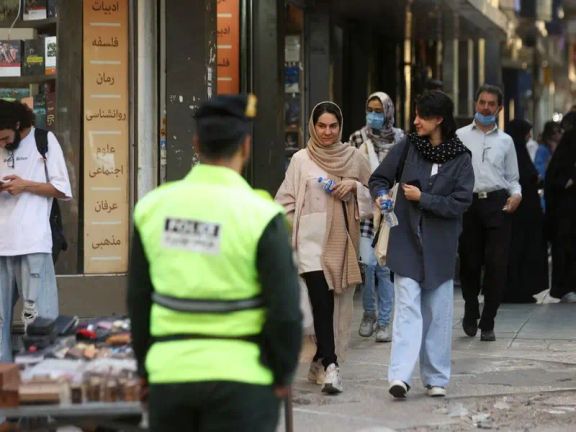Cameras To Be Used in Iranian Institutions for Hijab Monitoring

Amir Hossein Bankipour, a member of the Iranian Parliament, recently detailed more surveillance measures under the proposed Hijab and Chastity Bill to crack down on hijab defiance.

Amir Hossein Bankipour, a member of the Iranian Parliament, recently detailed more surveillance measures under the proposed Hijab and Chastity Bill to crack down on hijab defiance.
According to Bankipour, the bill mandates that all cameras in both public and private institutions be connected to the police force to monitor compliance with the Islamic dress code.
Bankipour said that “a first offense of violating the hijab rules would result in a suspended fine of 15 million rials (About 25 USD). A repeat offense would trigger an additional fine of 30 million rials (About 50 USD), accumulating to 45 million rials (75 USD) payable within three weeks.”
His comments emerge amidst controversy, as the Hijab and Chastity Bill has yet to receive approval from the Guardian Council.
The proposed law was drafted following widespread protests ignited by the death of Mahsa Amini in September 2022. Amini, 22, died in custody of the morality police for allegedly breaching the hijab mandate.
The utilization of CCTV for monitoring hijab adherence has raised concerns about privacy and the misuse of surveillance for financial gain through fines, rather than ensuring the safety of employees.
Previous government actions have included seizing vehicles from women who removed their hijab while inside their cars, requiring hefty fines for their release, despite such measures having no basis in Iranian law and the vehicle being considered a private space.
Bankipour said changes such as laws requiring municipalities to convert 20 to 30 percent of parks into areas exclusively for women are underway as the state continues its battle against a nationwide hijab rebellion.
Massive numbers of Iranian women in public spaces like streets, shops, malls, restaurants, and even government facilities, can be seen without the mandatory hijab as the nation's women defy the long-standing rule imposed since the founding of the Islamic Republic, in spite of state crackdowns.